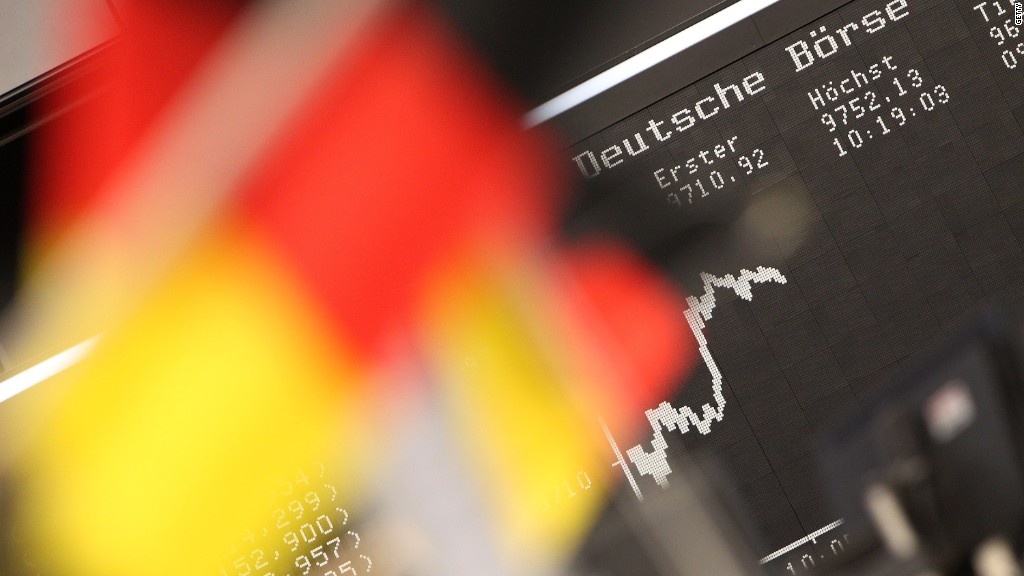
The far-right Alternative for Germany party won far more than 94 seats in the Bundestag this week. It also gained access to taxpayer funding worth millions of euros and other official support that will help amplify its message.
German law provides government funding for political parties based on their share of the vote, once they've crossed a threshold that can be as low as 0.5%.
By reaching a stunning 12.6% in this week's elections and winning its first seats in parliament, the AfD will receive money from the federal government for party activities, as well as other support such as office space and promotion on parliament's official website.
Given Germany's history, the thought of state support for the AfD alarms those in the country who fear some of the party's messages.
The party has become known for its online advocacy and use of memes focusing on nationalism, anti-immigration and anti-'Islamism.' Members of the party have called for an end to what they call "the cult of guilt" around the country's history with the Holocaust and have advocated against "the creation of mixed peoples."
One billboard for the party featured a pregnant white woman and the message "New Germans? We'll make them ourselves."
Related: Germany's far-right party searches for identity
The idea that parliament will be used as an official stage for such points of view brings to mind the Weimar era, the time that led up to Adolf Hitler and the Nazis rise in Germany," said professor Anna von der Goltz, of Georgetown University's School of Foreign Service.
"The Weimar era parliament was famously polarized and fragmented, so it conjures up lots of memories of the 1920s and and 1930s and those are deeply uncomfortable to most Germans," von der Goltz said. "Anything that smacks of somewhat racist pro-natalism is very suspect to Germans, so those images of a pregnant white woman and the slogan saying 'We'll make our own Germans' ... smacks of the Nazi-era population policies."
Jeffrey Gedim, a senior fellow at the Atlantic Council, said that while the AfD's character as a party is not yet fully formed, the "vile and dangerous elements" of the party are drowning out the "more mainstream anti-establishment insurgent voices" and alarming people.
"The proof is in the pudding. A lot of Germans find this very unsettling for reasons, in particular, because of their history and dark past and because this is something new in politics at the national level. A lot of Germans were convinced that the AfD would get in the Bundestag but not that they'd get double digits," Gedim said.
AfD has received some federal and state level funds since it was founded in 2013, when it won a little over 4% of the vote but fell just short of the threshold to enter the national parliament.
This week's result means the party will have much more cash to promote its beliefs, as well as a high-profile platform.
Related: What next for Germany's economy, carmakers and Europe
Under German law, political parties receive federal funds depending on how many votes the party gained in the most recent election, weighed alongside the amount of money the party already has in its coffers.
For federal elections, the parties receive one euro per vote up to four million votes, then 0.83 cents per additional vote. The parties also receive 0.45 cents for every euro the party receives in private donations. The full amount the AfD will receive as a result of Sunday's election has not yet been determined because the final official results have not yet been published.
Dr. Jackson Janes, president of the American Institute for Contemporary German Studies at Johns Hopkins University, said the funds can be used to shore up the party's support across the country and for state level races.
"This will give the AfD a chance to have more of a platform that will allow them to reach out to the public at large and not just around rallies that led up to the election," Janes said. "They'll have more capacity to present themselves to the public at large. It will be interesting to see how they use that source of support to create platforms that make them look like they aren't just opposition forces that are coming across with outrageous slogans."
In addition to funding for the political party, the AfD will also receive funding for a political foundation, as the other major parties do. The foundation is a sort of think tank that does research and outreach abroad, and is often named after a German historical figure.
"The notion that taxes are now going to flow to this party and not only can they fund their own parliamentary work and campaigns, they can set up their own political foundation ... there will be a lot of anxiety about that and what that will be named after. There's fear they'd name it after a big right-wing figure," von der Goltz said.
The AfD's new status also means greater access to free airtime granted to political parties for its commercials on state television and radio, some of the most popular channels in the country.
The commercials run in the six weeks leading up to elections. The next federal election is four years away but voters in the state of Lower Saxony go to the polls next month.

